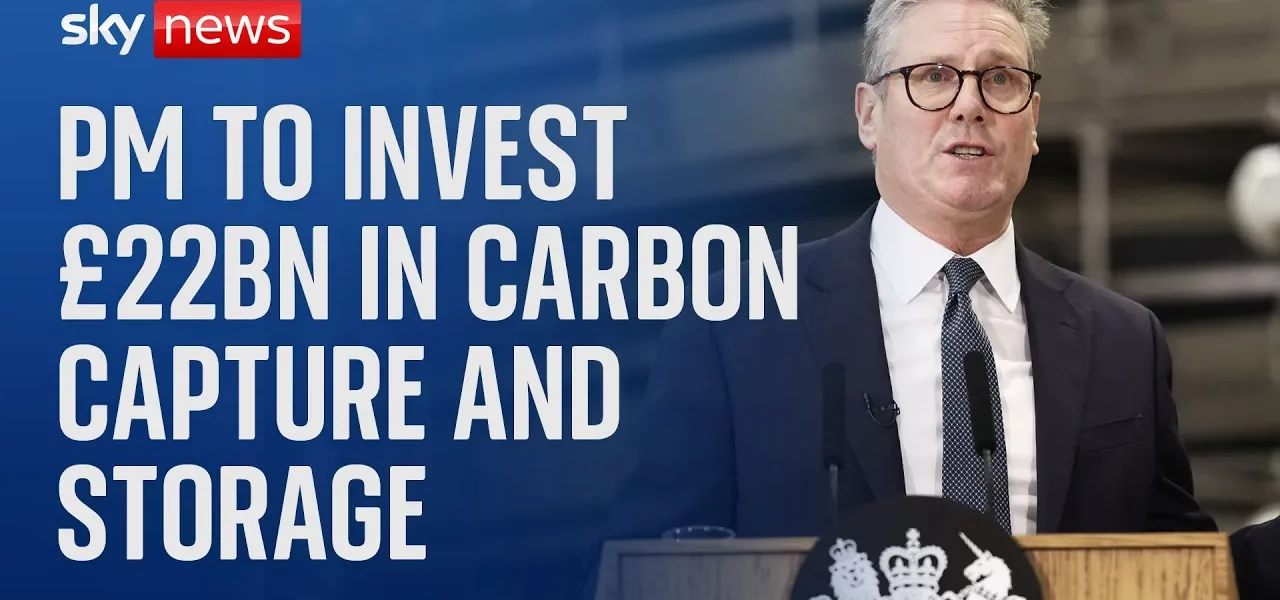Labor Promised a Clean Energy Future: Challenges Ahead

This article delves into the Labour party’s vision for a clean energy future in the UK, highlighting the challenges of job protection, significant investments in carbon capture technology, and the broader implications for the economy and environment.
Introduction
The transition to a clean energy future is a significant pledge from the Labour party, aiming to balance environmental sustainability with job security. Recent visits by the Prime Minister and Chancellor to a glass factory illustrate the government’s commitment to capturing carbon emissions, thereby reducing the environmental impact of industries while promoting economic growth. This article will explore the intricacies of Labour’s clean energy strategy, the investments being made, and the potential hurdles they face in securing a sustainable future for the UK.
Labour’s Clean Energy Vision
Labour’s promise of a clean energy future is rooted in the belief that this shift presents an unprecedented opportunity for the UK. The Prime Minister has emphasized that clean energy can enhance job security and offer hope to working-class citizens. This vision is not isolated; it resonates globally, with similar aspirations evident in regions like Northern France, Eastern Germany, and the Rust Belt in America.
The Global Race for Clean Energy
The race to establish a clean energy economy is intensifying. Countries worldwide are investing in clean technologies to reduce their carbon footprints and secure energy independence. The UK aims to position itself as a leader in this transition, leveraging its innovative capabilities to attract investment and create new jobs.
Investment in Carbon Capture Technology
Central to Labour’s strategy is a significant £22 billion investment aimed at two key sites for carbon capture technology. This initiative is designed to help the UK meet its climate targets by capturing harmful emissions and storing them deep underground.
Potential Benefits of Carbon Capture
- Reduction in greenhouse gas emissions
- Preservation of existing jobs in fossil fuel industries
- Attraction of foreign investment into the UK clean energy sector
- Development of new technologies that could lead to further innovations
Concerns and Criticisms
Despite the optimism surrounding carbon capture, there are significant concerns regarding its feasibility and long-term implications:
- Energy Security Risks: Some experts warn that reliance on carbon capture may undermine energy security by continuing dependence on fossil fuels.
- Increased Costs: The complexity and costs associated with carbon capture technologies could lead to higher energy prices for consumers.
- Delayed Results: Critics argue that it may take years to see tangible benefits from these investments, questioning the viability of such long-term projects.
The Economic Context
The economic backdrop is crucial in understanding the Labour party’s approach to clean energy. The government has faced scrutiny over its handling of public finances, with concerns about a potential “black hole” in the budget left by previous administrations. This financial instability poses challenges in attracting investment, as potential investors often cite uncertainty as a primary concern.
Stabilizing the Economy for Investment
The Prime Minister acknowledges that to secure the necessary investments for a clean energy future, the economy must first be stabilized. This includes making tough decisions in the budget, such as adjustments to winter fuel payments, aimed at creating a more predictable economic environment.
Conclusion
In conclusion, Labour’s vision for a clean energy future represents both an opportunity and a challenge for the UK. While the investment in carbon capture technology is a step towards reducing emissions and promoting job security, significant concerns remain regarding its implementation and potential long-term impacts. As the government navigates these complexities, it is imperative to maintain a clear focus on economic stability and investor confidence. To learn more about the implications of clean energy policies and their economic impact, explore our related articles on renewable energy investments and carbon reduction strategies.
“`




